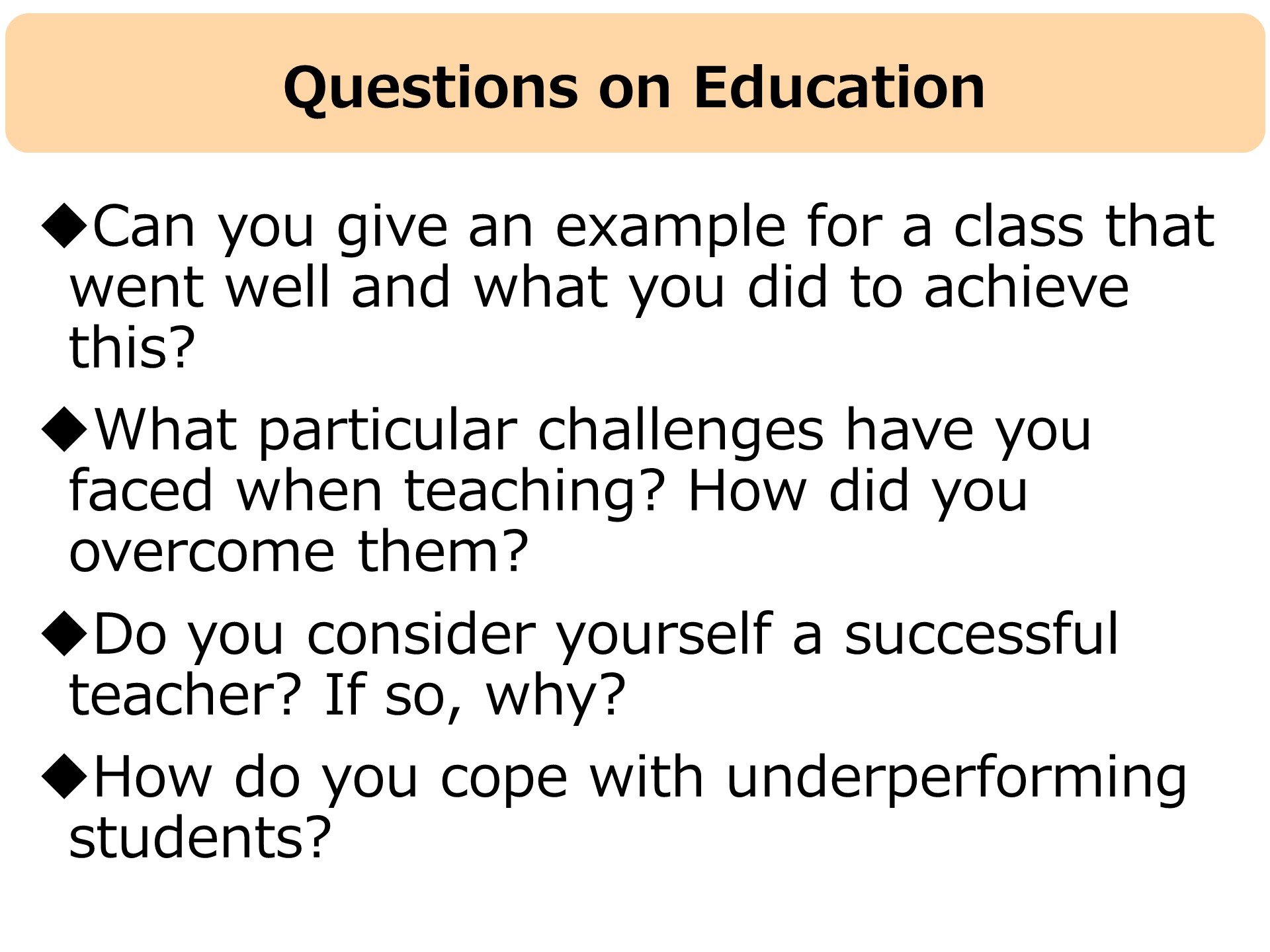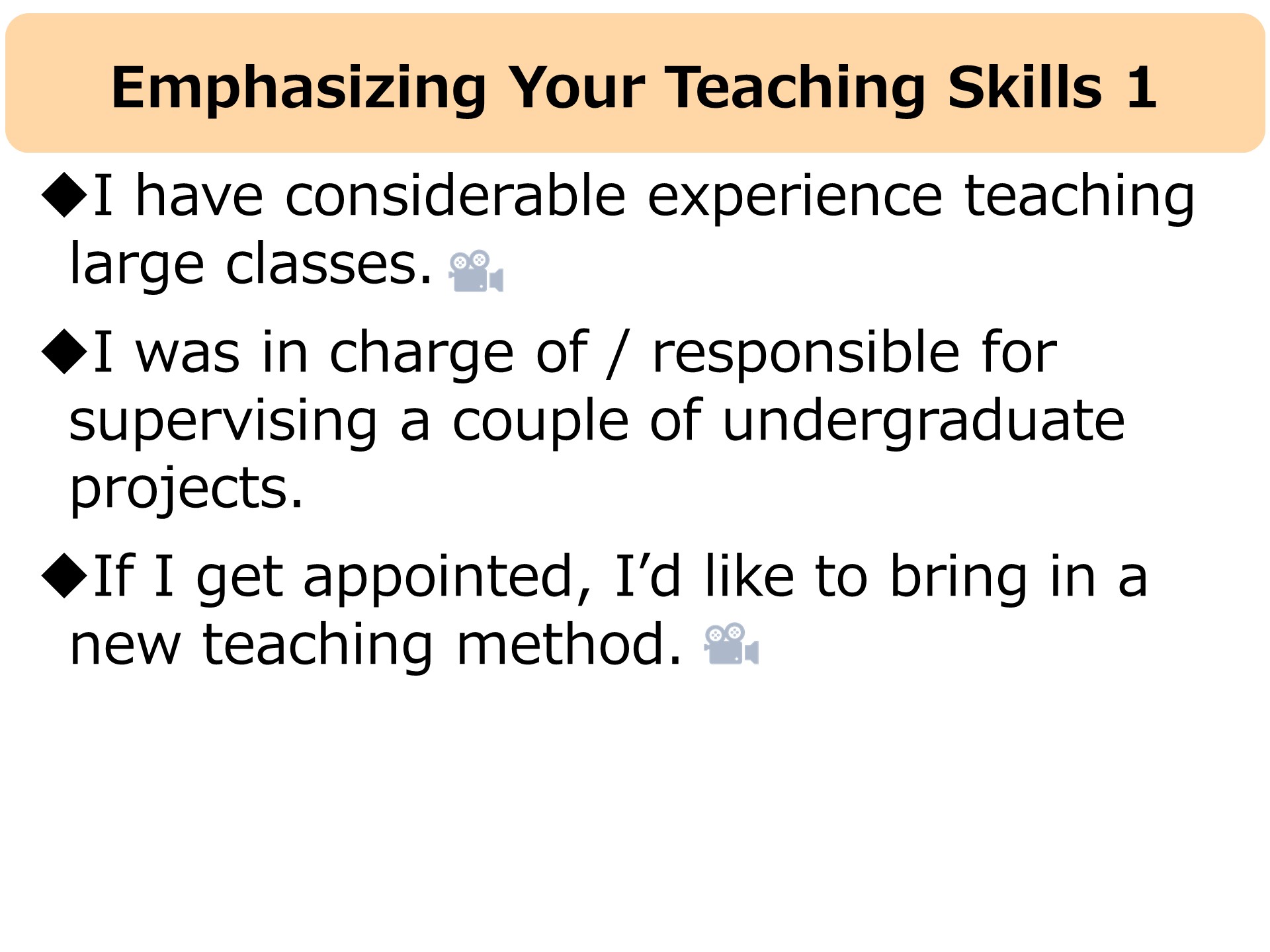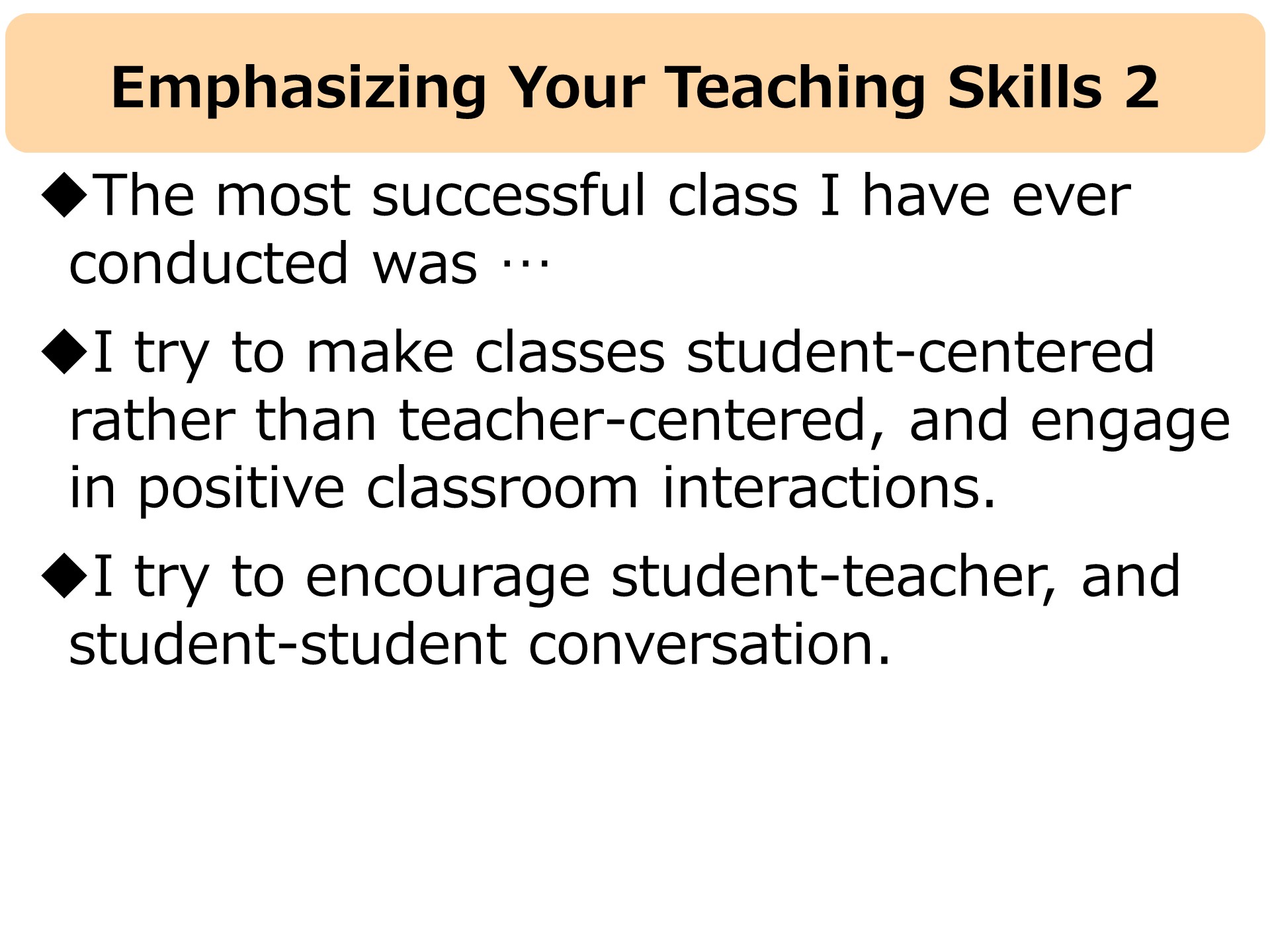5.5 Appealing Teaching Skills
(教育能力をアピールする)

Let’s continue our discussion on how to market yourself to a search committee. How about the issue of appealing teaching skills and experience in an interview?

I have seen some job postings for teaching positions at some websites including JREC-IN Portal and the Chronicle of Higher Education. They said, for example, “candidates will demonstrate excellent teaching skills,” “one year of demonstrated teaching experience required,” and “candidates with expertise in innovative teaching methodologies are encouraged to apply.”

Hmm, many universities stress that education is one of the crucial duties of faculty members. That means you will be a strong candidate if you can effectively appeal your expertise and experience in teaching.

In order to see the candidates’ teaching skills, some universities ask teaching demonstration in an interview. How about your interview, May?

Let me see an email from the university… Oh, my goodness! Teaching demonstration IS included in the interview!

I remember that Module 9 of EA1 deals with Microteaching, training methodology for practicing some teaching skills. That’s good for practicing teaching demonstration. If you need this training, I’ll be happy to help you.

Thanks. Maybe later…

Also, I recommend you review Module 7 and 8 of EA1 to refresh the teaching skills.

Sure!
5.6 Teaching Philosophy
(教育理念)

Some universities may ask you to express your teaching philosophy in the interview. This does not happen in Japan so often but it does happen in some other countries.

What do you mean by “teaching philosophy”?

You are supposed to explain what educational issues you’re concerned with, what you want to achieve through education, what you think is important in the relationship between a teacher and students, and so on. Regarding teaching styles, for example, you can mention these points: student-centered, teacher-centered, respecting what students are interested in, sharing goals of a lecture with students, etc.

I see.
5.7 Q&A about Teaching
(教育に関する質疑)

Now let us move on to the issue of Q&A regarding teaching.

We can’t escape from nor ignore this issue.

I know.

Did you submit a sample course syllabus when you applied for the job?

Yes, I did.

They will ask you some questions, for example, about how you will design your course, how you will organize your class, and what goals the students will achieve there, and so on. Anyway, how much teaching experience do you have, May?

I have worked as a TA at the University of Tokyo for the last couple of years and taught a class as a guest lecturer three times at another university.

The search committee will ask you about your experience. Now let’s have a look at some typical questions.



Uh…I feel some questions are tough. How can I deal with them? What if I cannot say anything?

What was your responsibility as a TA at the University of Tokyo?

I was responsible for tutoring fourth-year undergraduate students at the Geography Department. I read their undergraduate theses and gave them some suggestions on how to improve them. They all finished writing their theses successfully. It was my pleasure that one of them graduated with honor.

Wow, May, I admire your work.

Thank you. I came to realize that I was not bad at teaching.

When you are asked a question about teaching experience, you should feed that kind of stuff to the search committee. Also, I suggest you explain specific approaches and teaching methodologies you have applied in a class as well as the outcome of your teaching activities. This makes your statement persuasive. Here are some sample expressions to explain one’s teaching experience. You can make changes in these phrases in order for them match your own situation.


I got it. But…

But what?

Still, I’m a bit anxious about how to answer the questions. This is because I’m not so confident about teaching. What should I do if I don’t know how to answer a specific question? I know I should prepare well, but this could happen sometimes. I want to know how to handle such a difficult situation.

Good question, May. It could happen. What do you think you should say?

I don’t think it is smart, but I would say,“Oh, I’m not sure how to answer that question.”

You could say, “That’s an excellent question. I would need some time to think about it.” This way, you can avoid being too direct and honest.

Good to know.

I wish you a successful job-hunting!